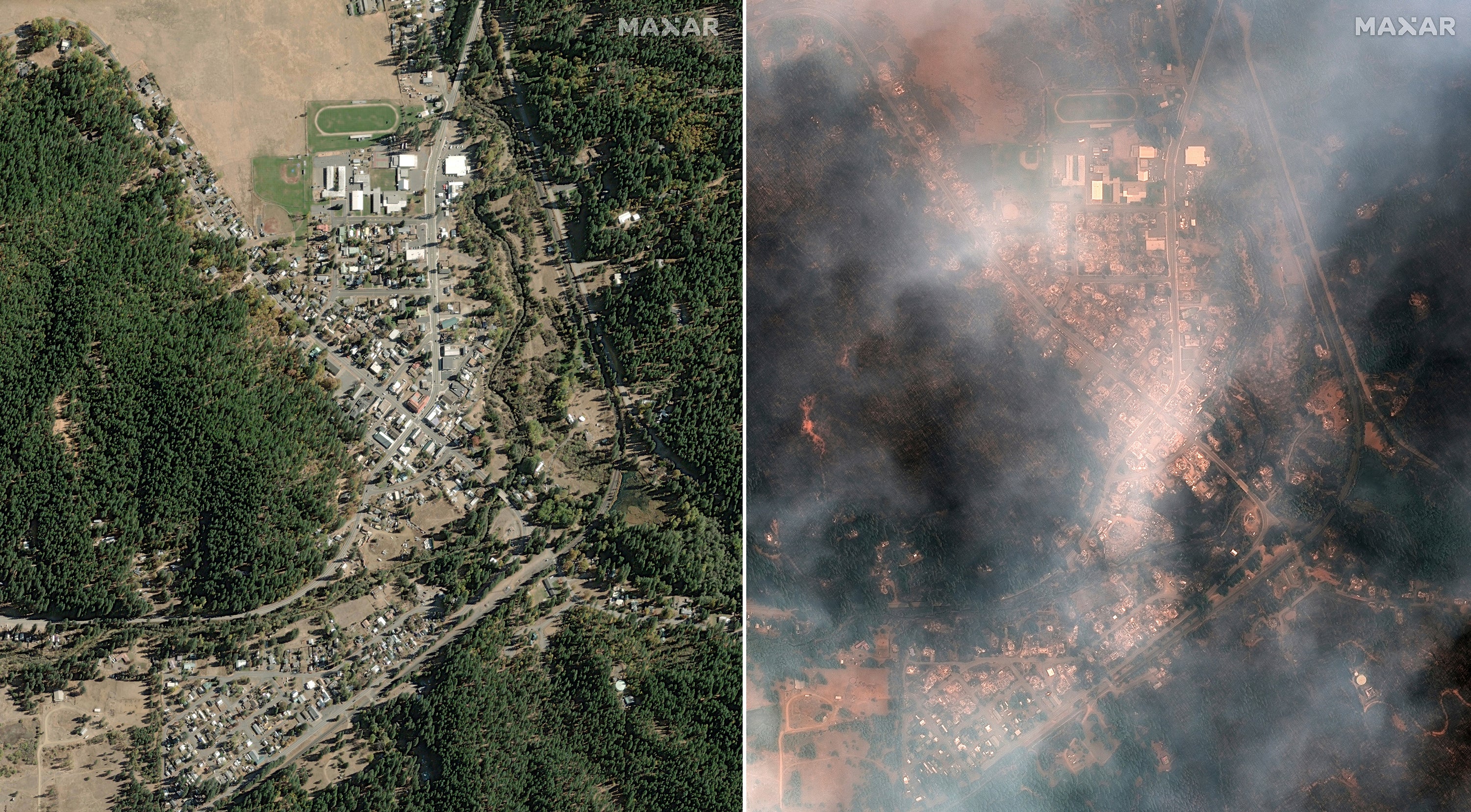Wildfire smoke could make you more prone to catching Covid, health authorities warn
Smoke particles make lung infections more likely
Your support helps us to tell the story
From reproductive rights to climate change to Big Tech, The Independent is on the ground when the story is developing. Whether it's investigating the financials of Elon Musk's pro-Trump PAC or producing our latest documentary, 'The A Word', which shines a light on the American women fighting for reproductive rights, we know how important it is to parse out the facts from the messaging.
At such a critical moment in US history, we need reporters on the ground. Your donation allows us to keep sending journalists to speak to both sides of the story.
The Independent is trusted by Americans across the entire political spectrum. And unlike many other quality news outlets, we choose not to lock Americans out of our reporting and analysis with paywalls. We believe quality journalism should be available to everyone, paid for by those who can afford it.
Your support makes all the difference.Medical experts have issued a health warning over smoke from wildfires – warning that it could make people more prone to catching Covid-19.
Blazes are raging across Europe and North America, fed by scorching temperatures and dry conditions and causing untold misery.
Now health authorities have issued a warning over the threat presented fine particles in smoke.
The World Health Organisation (WHO) states: “These microscopic particles can penetrate deep into your lungs.
“They can cause a range of health problems, from burning eyes and a runny nose to aggravated chronic heart and lung diseases. Exposure to particle pollution is even linked to premature death.
“Close to the fires, smoke is a health risk because it contains a mixture of hazardous gases and small particles that can irritate the eyes and respiratory system.
“The effects of smoke exposure and inhalation range from eye and respiratory tract irritation to more serious disorders, including reduced lung function, bronchitis, exacerbated asthma and premature death. Exposure to particulate matter is the main public health threat from short-term exposure to wildfire smoke.”

The Centres for Disease Control (CDC) in the US adds: “Wildfire smoke can irritate your lungs, cause inflammation, affect your immune system, and make you more prone to lung infections, including SARS-CoV-2, the virus that causes COVID-19.”
Current evidence shows that the effects of heatwaves on mortality are greater on days with high levels of fine particulate matter, the WHO states.
Older people, people with cardiorespiratory diseases or chronic illnesses, children, and people who work outdoors are particularly vulnerable to the combined effects of heatwaves and air pollution.
Scientists warn rising global temps due to greenhouse gas emissions are increasing the risk of fire conditions across the planet.
Parts of Europe are enduring severe heatwaves, while hot, bone-dry gusty weather has caused devastating wildfires in California. The US state is fighting to contain the largest blaze in its history.

Join our commenting forum
Join thought-provoking conversations, follow other Independent readers and see their replies
Comments